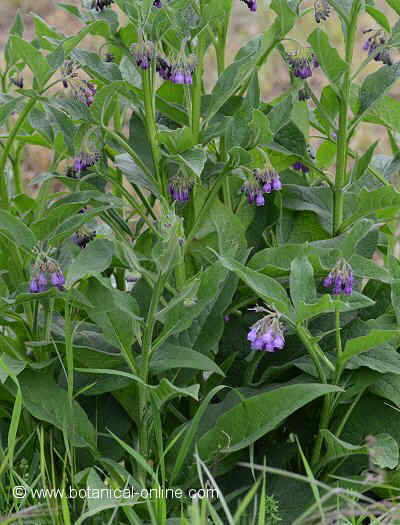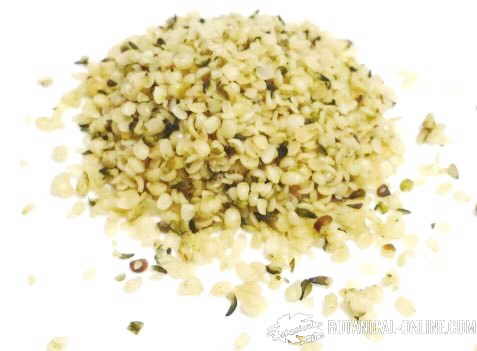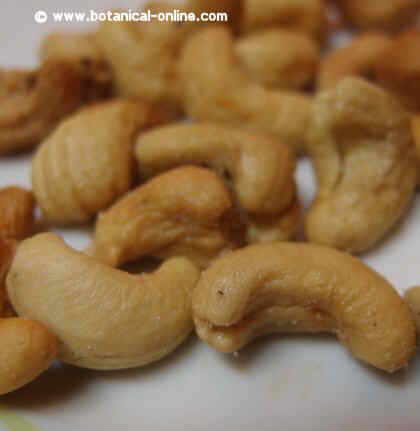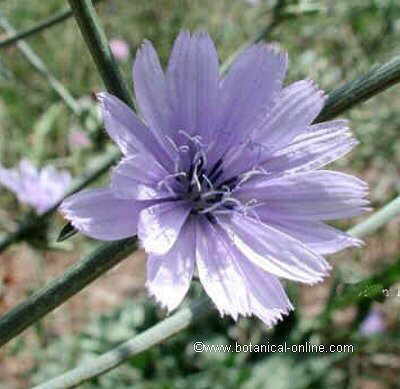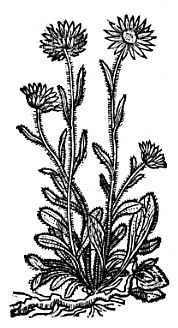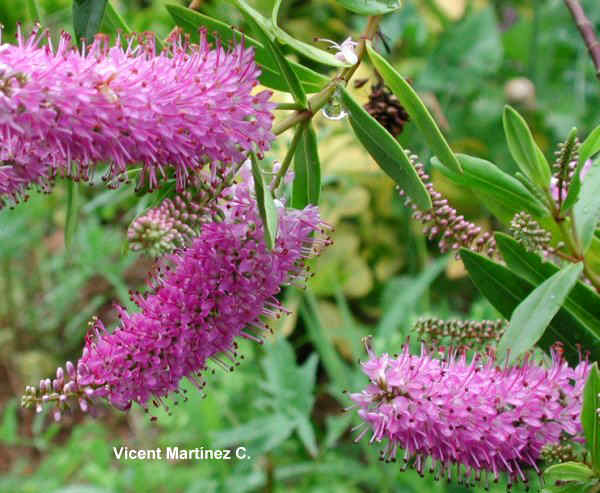Contents
Properties of Thymus serpyllum L.
Properties of wild thyme as a medicinal plant
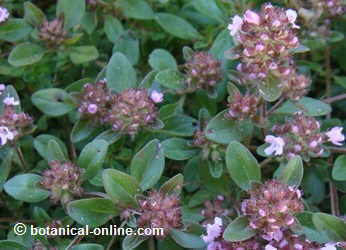
Wild thyme has the same medicinal virtues as thyme, although its effect is lighter. It is digestive, antispasmodic, diuretic, antiseptic and expectorant:
Digestive properties of wild thyme
Wild thyme stimulates digestive functions and its infusion improves slow or heavy digestion and flatulence. Carvacrol and thymol have antispasmodic properties against gastric and intestinal spasms, preventing the formation of flatulence and cramps, being useful in case of stomach pain, abdominal colic or diverticulitis. (Infusion of 1 teaspoon of flowering tops per cup of water, 3 cups daily, after each meal).
It whets the appetite and is a suitable plant in cases of anorexia or lack of appetite. (Season meals with a sprig of flowers).
Antiseptic properties of wild thyme
Thymol and carvacrol, present in the essential oil, are substances studied as powerful natural antiseptics, capable of fighting against microbes and fungi. Infusions with wild thyme can help overcome infections that affect different systems of the body.
It is well known that thyme (T. vulgaris) is one of the best natural disinfectants due to its enormous richness in thymol and carvacrol. The composition of wild thyme is very similar and has the same applications.
Thymol is a powerful antiseptic that prevents mouth infections and is recommended for gingivitis, toothache and when there are sores. (Take three cups a day with the infusion of one teaspoon of dried flowers per cup) (You can take the syrup made with 1 tablespoon of wild thyme and 2 of chamomile in a liter of water until it is reduced to ⅓. Sweeten and take 3 teaspoons a day). These treatments can be useful as adjuvants to antibiotic treatment in urinary tract infections and venereal diseases such as gonorrhea.
Uses of wild thyme in the kitchen
Plants rich in thymol are traditionally used in cooking for sensory reasons
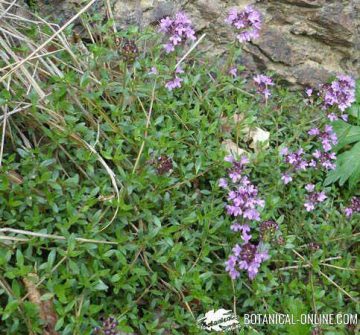
but also for health, as the antiseptic properties help prevent food poisoning. Wild thyme also protects against gastric infections and has a slight antiulcer effect. In addition, a slight immunostimulating effect has been observed in rosmarinic acid.
Wild thyme for respiratory diseases
Wild thyme calms cough and acts as an antiseptic and expectorant for the respiratory tract. Its antitussive activity is given by the antispasmodic properties of thymol and carvacrol, which act on the trachea, relieving cough. It is therefore a very suitable plant for respiratory diseases.
Due to its thymol content, it helps eliminate germs and reduces the symptoms of the infections they cause, including sore throat, fever and discomfort.
EXTERNAL VIA
- Pain: The balsamic aroma of wild can be used as a muscle relaxant in

Wild thyme cases of injuries or muscle pain (Rub the painful area with a mixture of 10 drops of wild thyme essential oil with 2 tablespoons of olive oil).
- It is also useful against sciatica, gout, arthritis or rheumatism (Add 20 drops to bath water, for 15 minutes) (Add to bath water a concentrated infusion with 3 tablespoons of wild thyme in a liter of water. Take a bath for 15 or 20 minutes).
- Tranquilizer: Its essence is used in relaxing baths and has a mild sleeping effect, for people with stress (Add a concentrated infusion with 3 tablespoons of wild thyme in a liter of water to the bath water. Take a bath for 15 or 20 minutes).
- Styes: Helps eliminate eye infections. (Make an infusion with a tablespoon of floral tops per cup. Apply a compress on the stye).
*Related information: Thyme soup Recipe and properties
![]() More information on properties of medicinal plants
More information on properties of medicinal plants


